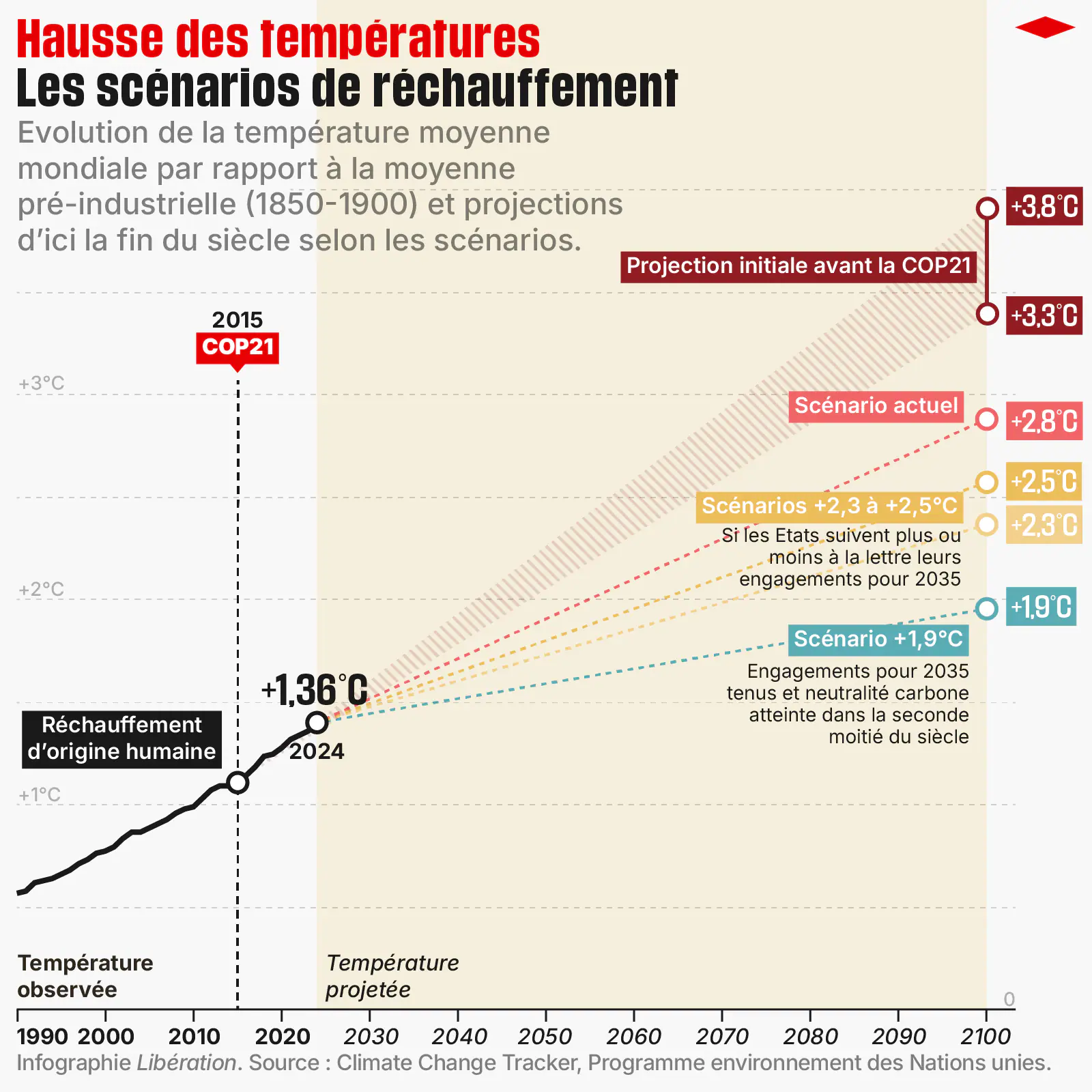Le climat est la distribution statistique des conditions de l’atmosphère terrestre dans une région donnée pendant une période donnée. L’étude du climat est la climatologie. Elle se distingue de la météorologie qui désigne l’étude du temps dans l’atmosphère à court terme et dans des zones ponctuelles. source : wikipedia
COPERNICUS – Mises à jour

Les champs auteur(e)s & mots-clés sont cliquables. Pour revenir à la page, utilisez le bouton refresh ci-dessous.
filtre:
climate
A recent UK national security assessment on biodiversity and ecosystem collapse made headlines, not for its dire warnings, but for its omissions. It's part of a larger trend of governments keeping climate security reports from the public.
Even as weather extremes worsen, the voices calling for the rolling back of environmental rules have grown louder and more influential
Science-based policies could successfully limit human-caused climate change, but when political parties are allowed to accept money from special interests, policies are distorted to the point of being ineffective. This is a solvable problem, but to clarify the situation and the needed actions, we need to first marshal the evidence. The draft Prologue of Sophie’s Planet is intended to help coherently organize the evidence. Here is Part III of V, with the final two paragraphs of Part II.
Welcome to the Global Climate Highlights 2025 report, compiled by the Copernicus Climate Change Service (C3S). The Global Climate Highlights 2025 report provides authoritative climate data and concise insight on a global scale about 2025's climate conditions, covering surface and sea surface temperature, heat stress, sea ice extent in the Arctic and Antarctic, among others.
Three major Defence Agencies are quietly admitting what most still refuse to face: climate breakdown is coming for our food, and the cracks are already spreading. While the wealthy cling to logistics and illusion, the real defence strategy is soil and local growers who refuse to let their communities starve.
A critical step on the path towards climate neutrality, the European Union’s 2040 target calls for a 90-per-cent reduction in emissions. Yet as far-reaching as this goal may seem, its provisions constitute a weakening of Europe’s climate ambitions under the Green Deal. By allowing costly and ineffective CO2 removal and storage technologies as a way of lowering emissions, the target risks deterring direct emission cuts and outsourcing pollution.
US President Donald Trump has announced the reversal of the so-called endangerment finding, a key Obama-era scientific ruling that underpins much of US environmental legislation. As a result of this, experts are predicting various environmental and economic impacts, though the decision by the US Environmental Protection Agency (EPA) is expected to be challenged in the courts from environmental groups.
Doyne Farmer says a super-simulator of the global economy would accelerate the transition to a green, clean world
Continued global heating could set irreversible course by triggering climate tipping points, but most people unaware
Today, we are close to the critical moment when conventional economic growth becomes impossible on a finite planet, constrained by two parallel factors: resource depletion and pollution. Tthe depletion of fossil fuels and other mineral commodities is placing heavy constraints on both industrial and agricultural production. We are not running out of anything yet, but the cost of extraction is increasing, just as the damage that extraction causes to the ecosystem. On the other side, pollution is appearing in more than one form. Chemical pollution is growing in terms of heavy metals, endocrine-disruptors, and other poisoning substances, while climate change can be seen as another form of pollution generated by the excess of CO2 in the atmosphere.
In Belem, Brazil’s leader, President Lula da Silva, opened the talks by denouncing obstructionists who “reject scientific evidence and attack institutions.” “They manipulate algorithms, sow hatred and spread fear,” he said, describing a surge in disinformation and propaganda aimed at blocking action to slow climate change. The summit, for the first time, put the issue on the agenda. A coalition of countries and international agencies issued a separate “Declaration on Information Integrity on Climate Change,” calling on governments to address climate disinformation, promote transparency and protect journalists, scientists and environmentalists.
By the end of this century, parts of Africa could face heatwaves for 250-300 days a year, which will make it difficult for people to survive.
Climate change is making it challenging to identify future host cities.
The world seems headed into another El Nino, just 3 years after the last one. Such quick return normally would imply, at most, an El Nino of moderate strength, but we suggest that even a moderately strong El Nino may yield record global temperature already in 2026 and still greater temperature in 2027. The extreme warming will be a result mainly of high climate sensitivity and a recent increase of the net global climate forcing, not the result of an exceptional El Nino, per se. We find that the principal drive for global warming acceleration began in about 2015, which implies that 2°C global warming is likely to be reached in the 2030s, not at midcentury.
The world seems headed into another El Nino, just 3 years after the last one. Such quick return normally would imply, at most, an El Nino of moderate strength, but we suggest that even a moderately strong El Nino may yield record global temperature already in 2026 and still greater temperature in 2027. The extreme warming will be a result mainly of high climate sensitivity and a recent increase of the net global climate forcing, not the result of an exceptional El Nino, per se. We find that the principal drive for global warming acceleration began in about 2015, which implies that 2°C global warming is likely to be reached in the 2030s, not at midcentury.
States and financial bodies using modelling that ignores shocks from extreme weather and climate tipping points
l'observatoire US de la dérégulation environnementale
Climate change could lead to half a million more deaths from malaria in Africa over the next 25 years, according to new research.
With warming set to pass the critical 1.5-degree limit, scientists are warning that the world is on course to trigger tipping points that would lead to cascading consequences — from the melting of ice sheets to the death of the Amazon rainforest — that could not be reversed.
The world endured its costliest wildfire on record in 2025, its sixth-deadliest heat wave, and four floods or storms that caused at least 1,000 deaths.

![]()
![]()





